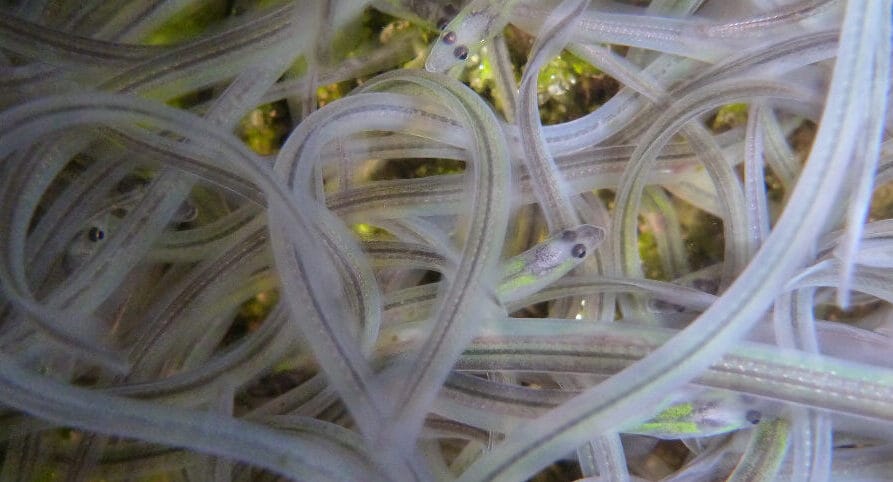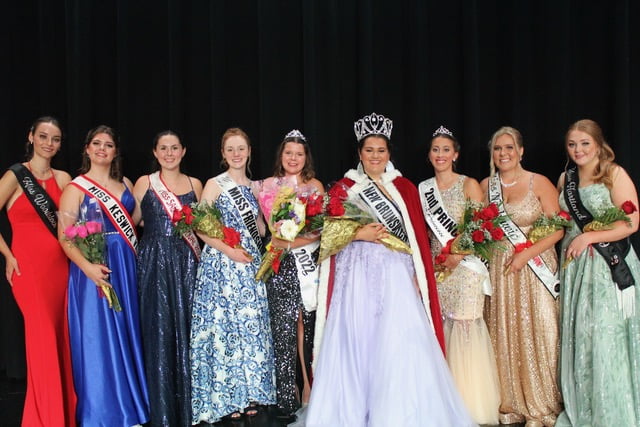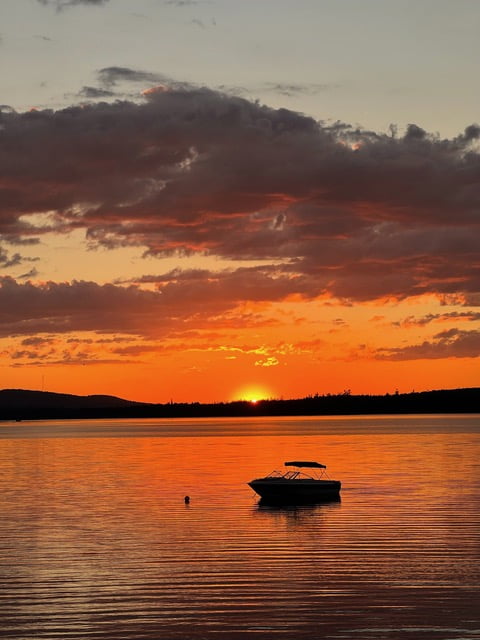Woman says feds driving her ‘out of business’ so they can turn fisher over to First Nations, others
By John Chilibeck – Local Journalism Initiative Reporter, The Daily Gleaner
A New Brunswick entrepreneur whose family pioneered the baby eel industry in Canada is suing Ottawa again after it told her she would likely lose nearly 90 per cent of her business to First Nations and other people who want to get in on the lucrative fishery.
In a filing in the Court of King’s Bench in Fredericton on Dec. 9, Mary Ann Holland accuses the defendants, who include three successive federal fisheries ministers and eight high-ranking officials in the Department of Fisheries and Oceans, or DFO, of having “engaged in a carefully calculated plan” over the years to drive her “out of business,” and give it away to First Nations and other fishers.
“Such a plan represents patent gross abuse,” the lawsuit states, which they know will cause great damage to her companies, Brunswick Aquaculture and Alder Seafood.
She complains that Ottawa did little to enforce the fishing rules on the water and was, in effect, in cahoots with First Nations leaders who told their people to exert their Aboriginal right to pluck eels out as they wished.
Holland declined to be interviewed for this article. But she has stewed about Ottawa’s decisions in recent years to allow more First Nations to catch the elvers and its lack of enforcement on waters in southwestern New Brunswick, where she’s a licence holder, a spring fishery that’s been cancelled a few times because of poaching and spasms of violence.
Now, the trouble has boiled over.
Holland’s late husband, Philip Holland, was the first commercial eel licence holder in the Maritimes, setting up the practice and developing overseas markets for the creatures 36 years ago. The Holland family has held a licence continuously since 1988.
Mary Ann Holland has argued in other lawsuits against Ottawa and First Nations that they are destroying her business.
The Wolastoqey Nation dismisses her claims and says they have a traditional right to fish.
In the latest filing, Holland says DFO has invited some of her former employees to become licence holders.
A department spokeswoman said officials were aware of the allegations in Holland’s lawsuit, which were not tested in court.
“As the department is a named party and this matter is now before the courts, it would be inappropriate for DFO to comment,” said Debra Buott-Matheson in an email to Brunswick News.
One of Holland’s colleagues in the baby eel industry in Nova Scotia warned that no one in the fishing industry would be safe from federal confiscation of their licences without any financial compensation.
In a two-page letter sent Dec. 5 to nine enterprises in New Brunswick and Nova Scotia with elver, or baby eel, commercial licences, Jennifer Ford, the director of the DFO elver review team in the Maritimes, outlined the latest proposed changes following consultations.
Ford – who is named as a defendant in Holland’s lawsuit – said the federal fisheries minister, Diane Lebouthillier, favoured “broadening the benefits” of the elver fishery to boost First Nations’ participation and give people already working for the commercial elver industry a shot at having their own licenses.
She said redistributing existing quotas was the only way of ensuring the species’ long-term survival.
A table attached to the letter showed that of the nine licence holders, before 2022, eight of them had a quota of 1,200 kilograms each (a ninth had a quota of 360 kg).
The new proposal would see all their quotas – or total allowable catch – significantly reduced by between 60 and nearly 90 per cent. Holland’s company fares the worst, going from 1,200 kg annually down to 123 kg.
The letter appears to be the last straw for Holland, whose lawyer filed the legal paperwork only a few days later.
Stanley King, whose in-laws have owned Atlantic Elver Fishery near Kejimkujik National Park in southwestern Nova Scotia since the early 1990s, said the department was unfair to hard-working entrepreneurs who had developed the business.
“The process has been an exercise in futility,” he said of the letters sent from the minister seeking the industry’s input into the changes. “It was a sham consultation. They didn’t listen to one thing we said.”
He also described it as a “five-year coup de grâce of DFO mismanagement that’s destroyed an entire industry that took 30 some odd years to create.”
King said the industry wasn’t against First Nations’ access to the fishery. However, he said the proper process to follow was the “willing buyer-willing seller” model to ensure there would be no animosity between the fishermen.
Such a model has been used in other fisheries, including crab and lobster, since the Supreme Court ruled 25 years ago that Aboriginal people have a right to pursue a moderate income from fisheries, a case that pitted Donald Marshall Jr., an adult eel fisherman, against the province of Nova Scotia. For the most part, those new agreements have reduced tension on the water.
According to Holland’s lawsuit, Ottawa also proposed buying out her licence in 2021, but it didn’t go anywhere. DFO eventually decided to unilaterally reduce the commercial eel quotas.
It’s not the first time in recent years DFO has made such a move. It reduced the number of traps of crab fishers in Tofino, B.C., by half in 2022, after a court ordered that part of the fishery had to be Indigenous. No compensation was offered.
“I want other fishermen to realize this is now the government’s path forward,” King said. “Other fishermen should be very afraid and should pay very close attention, because they will be next.”
As prices for the translucent baby eels have risen, people have fought over the spring run in dozens of rivers in the Maritimes.
The violence and unauthorized fishing got so bad that the federal fisheries minister suspended the season in the Maritimes this year.
The popularity of the American eels in Asian cuisine and the collapse of stocks in Europe has pushed prices up markedly.
Buyers who ship the eels to Asia, where they’re grown in tanks to adulthood and then made into sushi or other tasty dishes, have paid as much as $5,000 a kilogram for them, although prices have moderated this year to closer to $4,000 per kg. It is the most lucrative seafood by weight in Canada.
Holland’s lawsuit does not specify how much damages she’s seeking.
No statement of defence has been filed.















